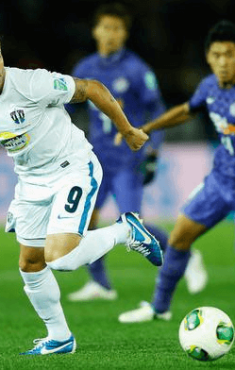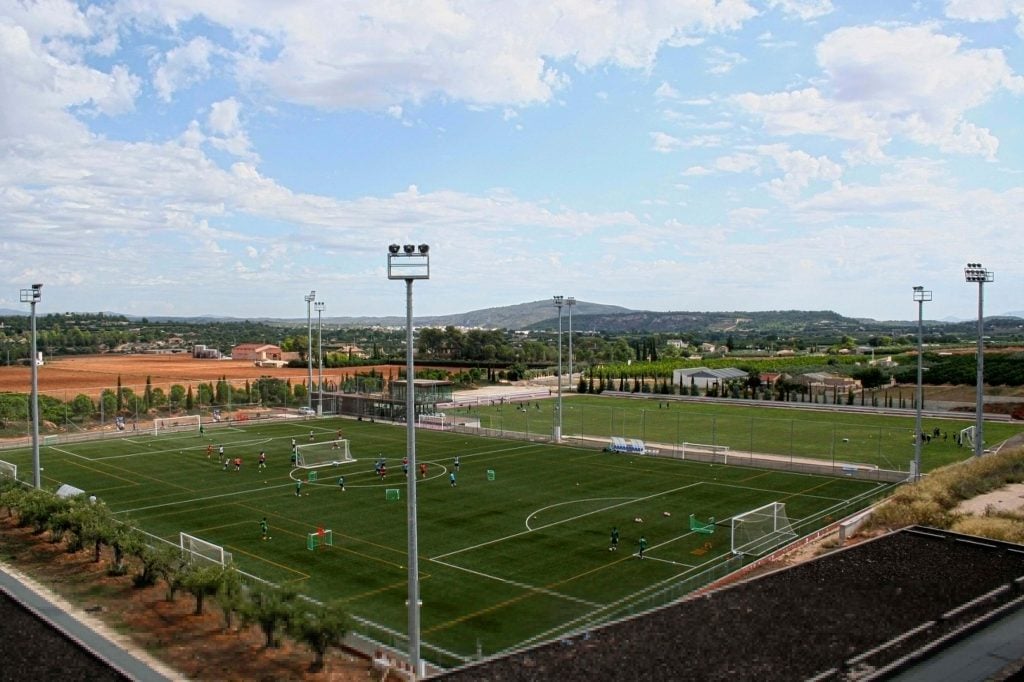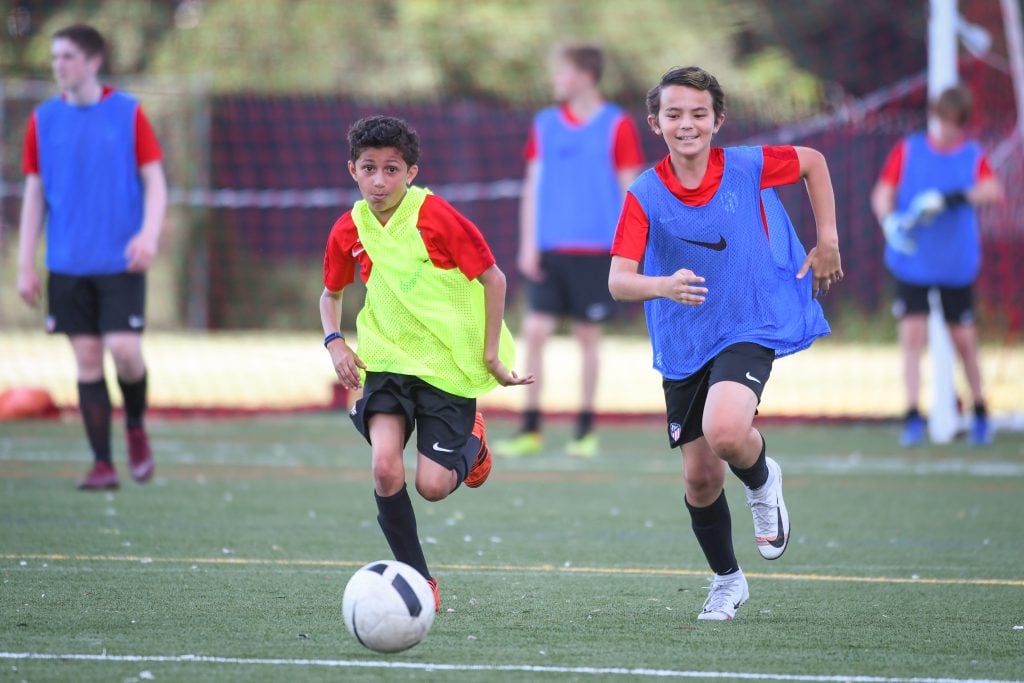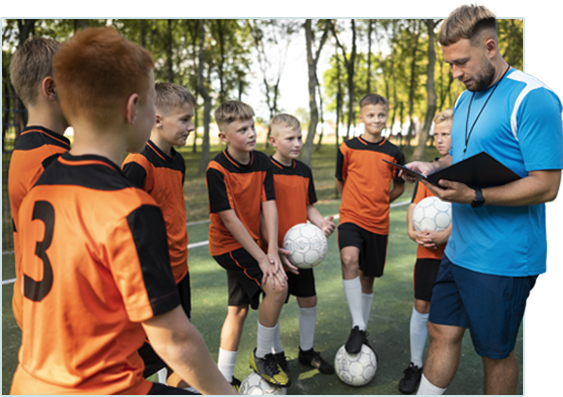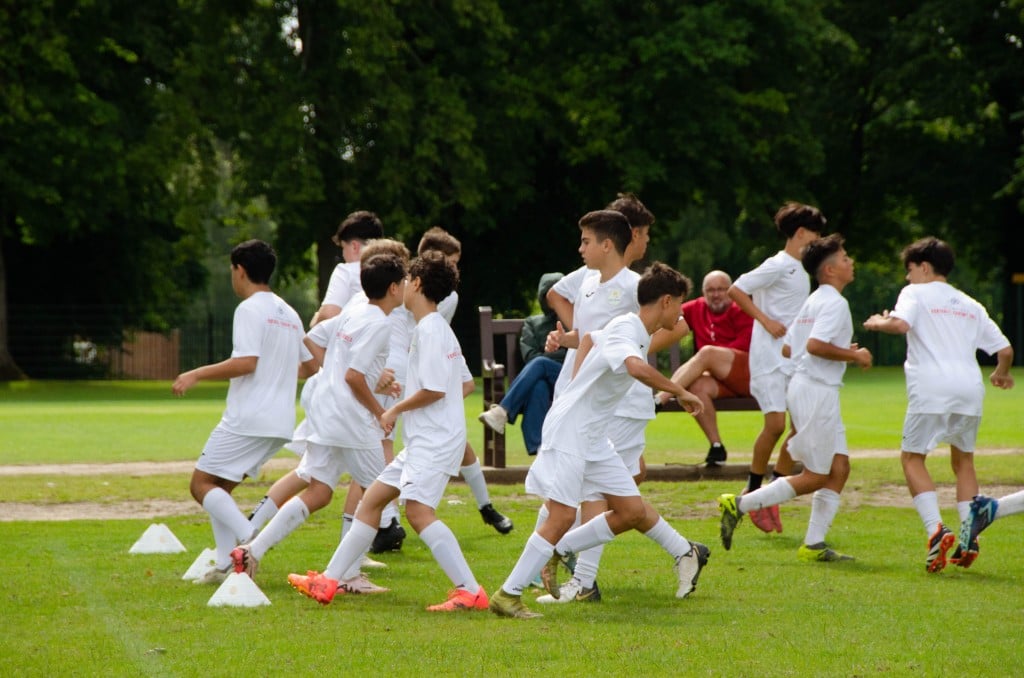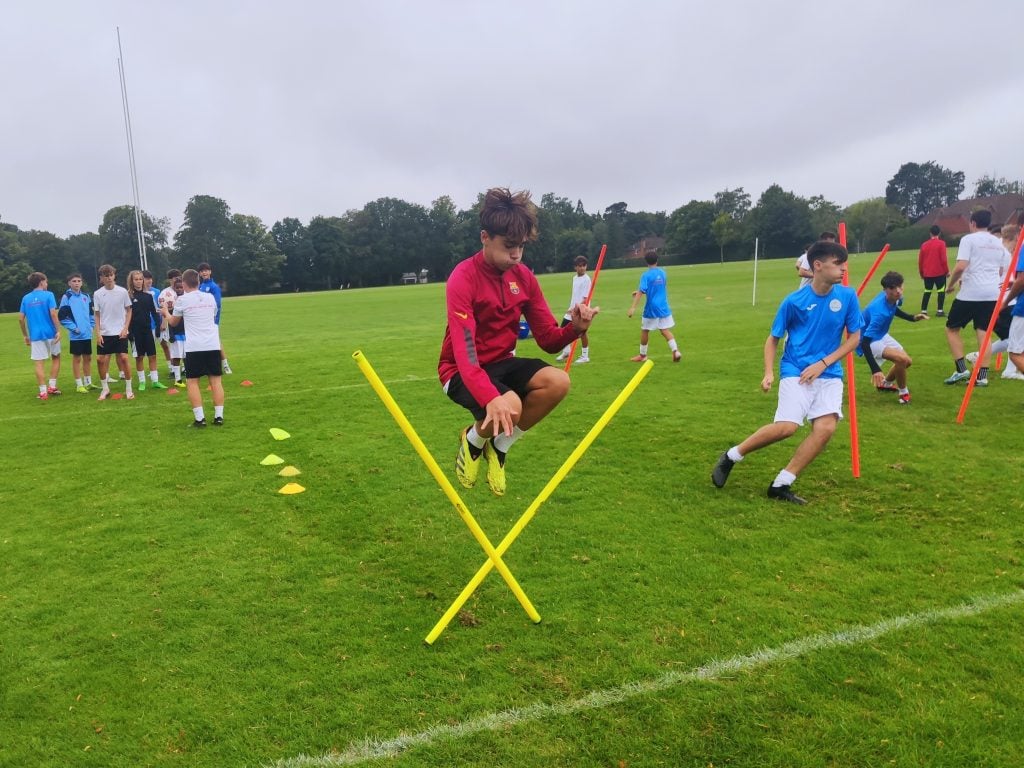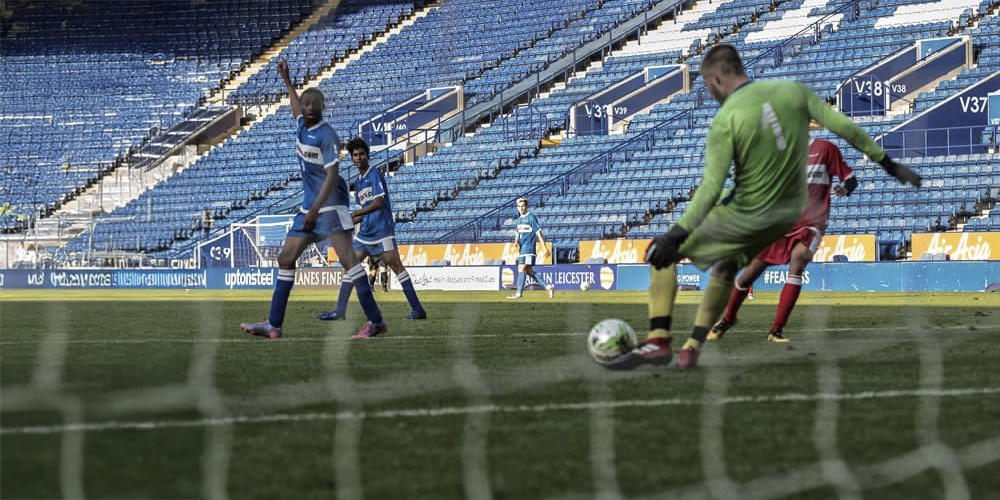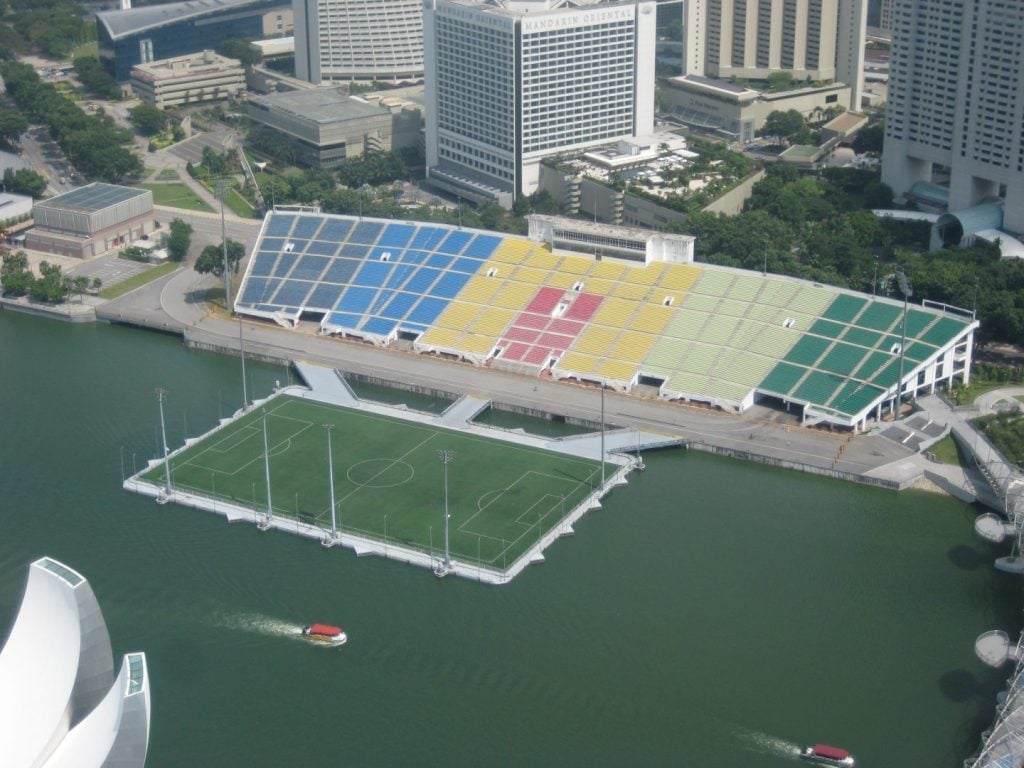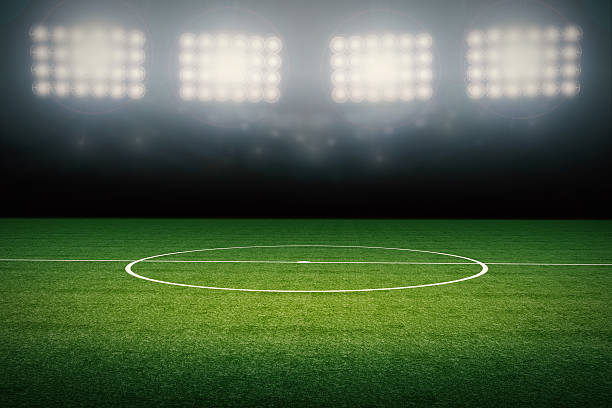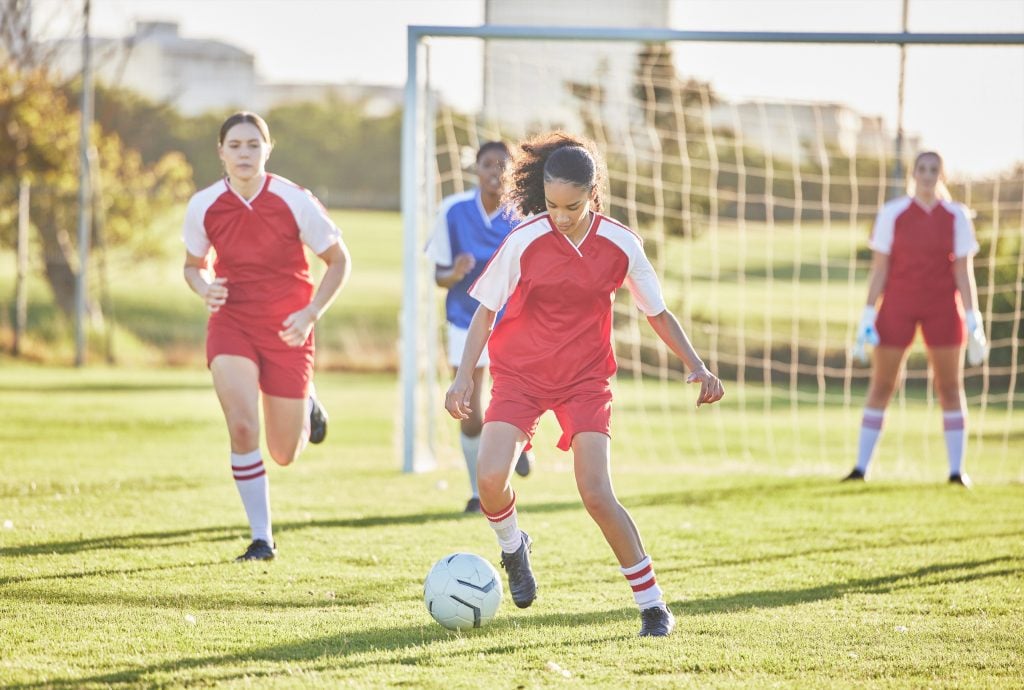In our previous interviews, we have talked about many aspects of sports training with psychologists and coaches. Each role within the game brings a different perspective on training and coaching, and it is the combination of these viewpoints that has helped to create the modern coaching methods employed today.
For our latest interview, we wanted to get the perspective of someone who has taken the journey from football-loving youngster to fully-fledged professional, and is now working in a coaching role.
Our quest for a suitable candidate led us to coach and former professional footballer, Manel Exposito. As a player, Manel Exposito represented the FC Barcelona B team and made six appearances for the first team. In 2003, he and fellow prospect Lionel Messi made their full debuts in a friendly match against FC Porto.
Later, after a spell in the ranks of Atletico Madrid, Manel spent four years playing in the second and third tiers of Spanish football before moving to the other side of the world to play for Auckland City FC. There, he won the Oceania Champions League three times, played in Two Fifa Club World Cups in Japan and twice finished as Oceania Golden Boot Winner.
Following his successful spell down under, Manel moved to Belgium to play for Kas Eupen, where he helped to guide the club through two play-offs and into the Belgian Pro-League, before finally hanging up his boots. The club wasted no time in offering Manel the role of Assistant Coach alongside fellow Catalan, Jordi Condom.
On a personal level, Manel studied for a Science and Sport Degree (specialising in high performance football), and has a Masters in Coaching and Sports Psychology. He has also completed his UEFA Pro Coaching License.
Manel is currently enjoying his second year as Assistant Coach at Kas Eupen, where he also carries out tactical analysis. Last year, the club were promoted to the Belgium Pro-League where they currently compete.
Interview with Former Pro Footballer Manel Exposito
Hi Manel, thanks for taking time out of your busy schedule to talk to Ertheo.
You have played under many coaches in your career, and you are now a coach yourself. What age ranges have you coached and at what level?
I have not had much coaching experience because I only finished my professional playing career two years ago. However, I have coached at a few academy clubs in Spain with U-15s and U-8s and I also worked as a coach in New Zealand with kids in the U-14 age range.
Last year, as an Assistant Coach, I coached professional players (including my ex-teammates) in the Belgium Second Division and this year (following promotion), I have coached players in the Belgium Pro- League (first division).
How has your experience as a player helped you as a coach?
I worked with kids and academies all over the world when I was still playing but as a professional coach I started late. I learned a lot during all my studies and also during my years as player. Of course, that helped me a lot, along with the fact that I used to love tactics and coaching even when I was still playing.
As a young player, at what age did your technical and tactical skills start to become important?
As I came from an FC Barcelona background, my technical skills started very early on in my playing career, and I gradually kept developing my tactical skills during my years as a professional. Of course, you need to start progressively, learning A, B, then C etc. Technical skills come first and are the basis on which we can ask for more progression and work on tactics.
Without fully-developed technical skills, a player can’t continue to progress. Even if we ask for more tactical skills and higher performance from a player, they won’t be able to deliver if they can’t make a pass or have poor control. So all the tactical skills are not useful if a player can’t play football with at least a minimum level of technical skill. I think that the more technical skills that you develop at a young age, the better you can be at your job and the more complex tactical skills you can learn later.
How many hours a week did you train when you were a youth player? And how many would you recommend for a young player today?
I’ve always loved football, so I trained every day even when I was not training with my team. But in Spain, we were used to playing football on the streets all day.
Overall, it depends on the age range but you have to start with maybe two days a week when you are a kid. However, I would recommend a minimum of three days a week plus some competition. But again, it all depends if we are talking about school competitions or professional club competitions.
What training drill or exercise did you enjoy most as a player?
As a striker, of course I enjoyed shooting and finishing exercises but I also enjoyed learning tactics and working on my individual skills. When you truly love football, you love all types of training, with no exception. Especially when you are young and ambitious and you want to learn as much as possible. In my professional life as a player, the ball was always present in training.
What training drill or exercise do you now enjoy most as a coach?
As a coach, it is different because you sometimes have to work with more tactical stuff, especially at a higher level. But is important to work on those aspects of the game. Personally, I like possession games and small, sharp matches with lots of intensity and competition. But we also have to work on general tactical exercises were you can improve all the aspects of the game together, and also with the same distances and sprints that you will find in a competitive match.
Every exercise that we propose in training can be amazing when the disposition of the players is correct and the intensity level is high. You can propose a fantastic and fun exercise but if the players are not interested and motivated, it will be useless.
Did your personal development (confidence, self-esteem etc.) have a direct effect on your ability as a player? And how does that effect the way that you coach today.
Of course, as I am as a person and as I was as a player, so I will be as a coach. If, at home in your personal life you are ambitious and hardworking, then you will become that kind of coach. If you are always negative, you will also become that kind of coach. Self-confidence and hard work are they key for everyone, not just in the coaching world but in everyday life too.
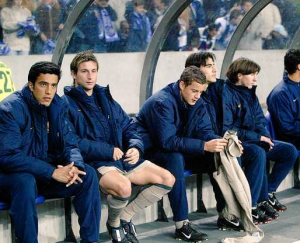
Manel second from the left the day of his debut with FC Barcelona.
Have you noticed a big variation in training techniques between different countries?
In my career, my experience has always been with Spanish coaches so I can’t give my opinion on other training techniques. But obviously there are a lot of cultural differences and it is the same with football. Each country is different and their training methods and ideas about how football should be played are very different too – you can see this in every match and every team. For example, the English league is very different to the Spanish league and so on.
Can training in a different country and experiencing different cultures help you to improve as a player?
Yes, but not only as a player. On a personal side, it can also help you develop – from how you handle difficult situations, to how you deal with language barriers. To be able to live in different countries and cities, and experience difference cultures and leagues has helped me a lot during both my personal and professional life. Some of the best experiences of my life have been away from my hometown and away from the places where I grew up.
As a young player, were you very disciplined in terms of diet and generally leading a responsible and healthy lifestyle?
Indeed, when you are young, it is very important to eat well and stay healthy. It is the fuel for your body, so it’s very important to maintain a healthy diet and lifestyle in terms of recovery. This also means sleeping the necessary hours and not adopting any bad habits like smoking or drinking alcohol. This is what we call “invisible training” and it’s very important in terms of preventing injuries and ensuring that you are in the perfect condition to give your best performance during training and in matches.
Talking of injuries, did you have any major injury problems as a young player? And if so, how did it affect your development?
Yes, unfortunately I did. I broke the fifth metatarsal of my right foot twice and had two operations. This happened right at the beginning of my best years when I was playing for the FC Barcelona B team and had already made my first team debut. I actually broke my foot in a training session with the first team. I never played for the first team again but it is impossible to say for sure that the injury was the reason. However, it is true that it did affect my performance and my progression right at the most important moment of my career.
Having said that, I also learned a lot from this experience, and had to accept the frustration. I realized that football is important but it is also vital to have something else in your life because you never know what can happen. Studying for a degree on the side can give you other options and also help with your personal growth.
What steps can you take as a coach on the training field to help young players avoid injuries?
Together with our current physical coach, we work a lot on Injury prevention exercises before each training session. Each player has a specially-adapted plan, based on their previous injury history, to help prevent injuries or rebuild strength were necessary.
It’s very important to communicate directly with the medical staff each day before training to see which players are more tired or have sore muscles. This way, we can adapt the training load to suit their needs of the player and according to the game.
Do you feel that luck played any part in your career? And if so, how?
In football and in life, I don’t believe in luck, but I do believe in “good luck.” If you really work hard and you are always positive and proactive, then good things will happen to you – because you search for them and you fight for them. Everything happens for a reason, like my injury, but maybe without that I wouldn’t be the person who I am today. Or maybe I would not have played where did or I had the experiences that I had in football and in life.
I believe that if you stay at home and you complain, nothing good will happen to you and luck will not come your way. You actually have to go outside and work hard every day, again and again, and then good things might start to happen.
What advice would you give to an aspiring 16-year-old player today?
My advice is simple: to believe in yourself, work hard and never give up. Keep working and trusting that in the end everything will work out. In addition, you should study and work on your self-development as a person. Keep developing all the time and learn new languages. Don’t rely on football alone, life has many more options to offer you.
Do you think a soccer camp can play an important role in a young player’s development?
Definitely, training at a good soccer camp with top professional coaches is always a good idea, especially on holidays and school breaks. Soccer camps are also great fun and it is always good to enjoy football and to enjoy life!
You can follow Manel Exposito on social media here:
Twitter: @Xinoexposito
For more details about our football soccer camp services, please call us on (+34) 951 204 061 or visit our web ertheo.com.

